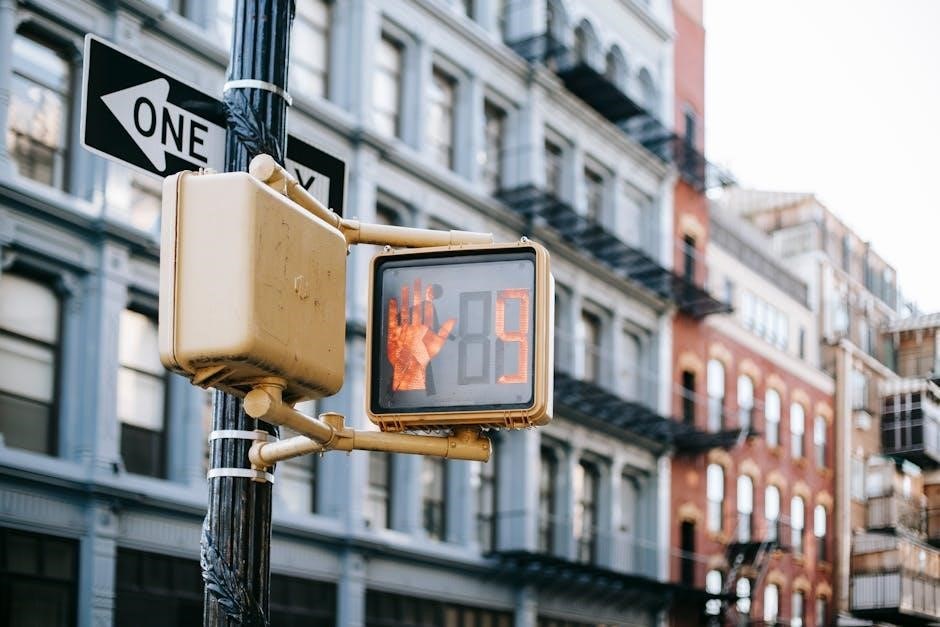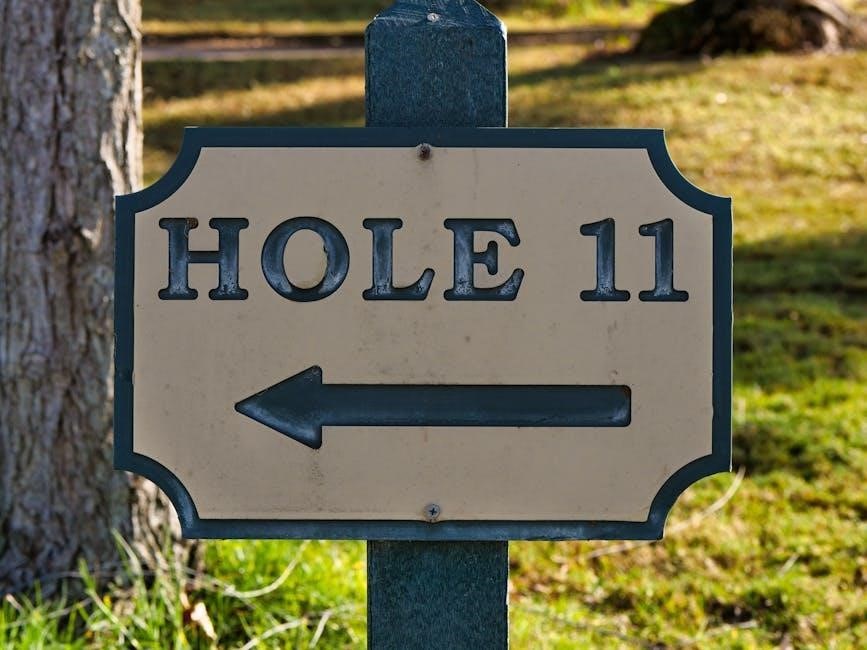VAT (TVA in French) is a consumption tax applied to goods and services, with a standard rate of 20%. It is levied on value added at each production stage, aiming to encourage economic activity and simplify tax collection.
Definition and Purpose of VAT
VAT (TVA in French) is a consumption tax levied on the value added to goods and services at each stage of production and distribution. Its primary purpose is to tax goods and services based on their value, encouraging economic activity by simplifying the tax system. Businesses collect VAT from consumers and remit it to the government, making it an efficient method of indirect taxation. This system ensures fairness by taxing products according to their final market value.
History and Evolution of VAT in France
Introduced in France in 1954, VAT (TVA) was initially designed to modernize the tax system by replacing earlier indirect taxes. Over the years, rates and regulations have evolved to adapt to economic changes. The standard rate increased from 16% in 1968 to 20% in 2014. Recent reforms, such as the 2025 VAT threshold adjustments for micro-entrepreneurs, reflect ongoing efforts to balance tax collection with support for small businesses, ensuring the system remains fair and efficient for all economic stakeholders.

VAT Rates Applicable to Vehicles
VAT rates on vehicles in France include a standard rate of 20%, with reduced rates of 10%, 5.5%, and 2.1% applying to specific cases, ensuring tailored taxation for automotive transactions.
Standard VAT Rate (20%)
The standard VAT rate in France is 20%, applicable to most goods and services, including new vehicles. This rate is charged on the value added at each production and distribution stage. Businesses eligible for VAT deductions can recover the tax paid on purchases, reducing their net liability. Compliance with invoicing and declaration requirements is essential to avoid penalties. This rate plays a crucial role in France’s fiscal system, balancing revenue generation with economic activity support.
Reduced VAT Rates (10%, 5.5%, 2.1%)
In France, reduced VAT rates apply to specific goods and services. The 10% rate applies to certain services and goods, while the 5.5% rate is for essential items like food and transportation. The 2.1% rate is reserved for specific products, such as non-luxury used vehicles. These reduced rates aim to alleviate the tax burden on essential purchases and support certain industries. Eligibility varies, and businesses must ensure compliance with France’s VAT regulations to apply these rates correctly.
Specific Cases for Vehicle Purchases
Specific cases for vehicle purchases in France involve a 20% VAT rate on new vehicles. Reduced rates of 10%, 5.5%, and 2.1% apply to certain used vehicles based on their value and usage. VAT exemptions may apply to imported vehicles under specific conditions. Additionally, the reverse charge mechanism may apply to B2B transactions, shifting VAT liability to the buyer. Businesses must ensure compliance with these regulations to avoid penalties.

VAT Exemptions and Special Regimes
VAT exemptions in France apply to certain transactions, such as sales of used vehicles under specific conditions. Micro-entrepreneurs may benefit from reduced obligations, while temporary exemptions exist for small businesses.
VAT Exemption for Micro-Entrepreneurs
Micro-entrepreneurs in France may qualify for VAT exemption, allowing them to avoid charging VAT on their services or goods. This regime simplifies tax obligations, particularly for small businesses with limited turnover. The exemption threshold was initially set to change in 2025 but was suspended following criticism. This exemption helps reduce administrative burdens and financial pressures on small businesses, fostering entrepreneurship and economic growth. Eligibility is based on specific revenue thresholds and business activities, providing relief to qualifying micro-entrepreneurs.
Temporary Exemptions and Thresholds
Temporary VAT exemptions and thresholds provide relief to businesses during specific periods or under certain conditions. In France, these exemptions often target micro-entrepreneurs and small businesses, allowing them to defer or reduce VAT payments. The 2025 budget initially proposed lowering the VAT exemption threshold to €25,000, but this measure was suspended due to opposition. Temporary adjustments help businesses adapt to economic changes, ensuring financial stability while maintaining compliance with VAT regulations. These thresholds are subject to review and modification based on economic conditions and governmental policies.
VAT on Used Vehicles and Margins
VAT on used vehicles in France applies to the margin, calculated as the difference between the sale and purchase prices. The standard VAT rate of 20% is applied to this margin. Businesses that purchase used vehicles for resale can deduct the VAT paid on the purchase from the VAT owed on the sale. This system simplifies VAT collection and reduces administrative burdens for dealerships. Private sales between individuals remain exempt from VAT, further clarifying the application of VAT on used vehicles.
The Reverse Charge Mechanism
The Reverse Charge Mechanism shifts VAT liability to the buyer, simplifying compliance for suppliers in specific transactions involving goods and services.
Understanding the Reverse Charge System
The Reverse Charge System (RCS) transfers VAT payment responsibility to the buyer, reducing compliance burdens for suppliers. It applies to specific transactions, ensuring tax is collected without increasing administrative costs. This mechanism helps prevent fraud and simplifies cross-border trade within the EU. Businesses must review eligibility criteria and maintain accurate records to comply with RCS regulations effectively.
When Does the Reverse Charge Apply?
The Reverse Charge applies to specific transactions, such as supplies of goods or services where the supplier is not established in France. It typically affects cross-border deals within the EU, aiming to simplify VAT obligations for businesses. The system is particularly relevant for auto-entrepreneurs and micro-enterprises, ensuring compliance without additional administrative burdens. Proper understanding of its application is crucial for accurate VAT reporting and avoiding penalties.
Administrative Procedures for Reverse Charge
Under the Reverse Charge system, businesses must issue invoices without VAT and clearly state that the VAT is the buyer’s responsibility. The buyer then accounts for both the input and output VAT in their VAT return. Proper documentation, including invoice details and transaction records, is essential. Businesses must also ensure compliance with reporting deadlines and maintain accurate records for potential audits. This system simplifies VAT obligations for cross-border transactions, particularly for auto-entrepreneurs and micro-enterprises operating within the EU.
VAT and Micro-Entrepreneurs
Micro-entrepreneurs in France are exempt from VAT under certain conditions, simplifying their tax obligations. Recent changes in 2025 aim to adjust thresholds, impacting their VAT responsibilities and accounting processes.
Thresholds for VAT Obligations
In France, micro-entrepreneurs are exempt from VAT if their annual turnover remains below specific thresholds: €37,500 for services and €85,000 for goods. These thresholds determine whether businesses must charge and remit VAT. Crossing these limits obligates them to register for VAT, impacting their accounting and invoicing processes. Recent reforms considered lowering these thresholds to €25,000, but the measure was suspended due to opposition, maintaining the current system for 2025 and beyond.
Recent Changes in VAT Thresholds (2025)
Planned changes to VAT thresholds for micro-entrepreneurs in 2025 aimed to lower the exemption limit from €37,500 to €25,000 for services. However, following significant opposition from small businesses and auto-entrepreneurs, the government suspended this measure. The decision was made to avoid increasing the financial burden on entrepreneurs, ensuring stability for micro-enterprises. This suspension maintains the existing thresholds, providing relief to those relying on the higher exemption limits for their operations.
Implications of VAT for Auto-Entrepreneurs
VAT implications for auto-entrepreneurs depend on their turnover and business activities. Those below the exemption threshold (e.g., €37,500 for services) are not required to charge VAT, simplifying their operations. However, exceeding this threshold obligates them to collect and remit VAT, increasing administrative tasks. Auto-entrepreneurs must understand VAT rules to avoid penalties and ensure compliance, as incorrect declarations can lead to fines. Additionally, VAT impacts pricing strategies, potentially affecting customer affordability and business competitiveness in the market.
VAT on Vehicle Sales and Purchases
VAT on vehicle sales and purchases varies depending on the type of vehicle and its usage. New vehicles are subject to the standard 20% VAT rate, while used vehicles may qualify for reduced rates or margin-based taxation. Leasing and imports also have specific VAT rules, requiring careful compliance to avoid penalties.
VAT on New Vehicles
In France, new vehicles are subject to the standard VAT rate of 20%. This applies to all new cars, defined as having less than 6,000 kilometers or being less than six months old. Businesses purchasing new vehicles can deduct the VAT if they are VAT-registered, while individuals cannot. The VAT is calculated on the vehicle’s purchase price, including any optional features or accessories. This rule ensures consistency in taxation for new vehicle sales across the country.
VAT on Used Vehicles
Used vehicles in France are subject to VAT, but the rate and application vary. When sold by a professional dealer, VAT is charged on the profit margin (marge), not the full price. This means VAT is calculated only on the difference between the purchase and resale price. The applicable VAT rate is typically 20%, but reduced rates may apply under specific conditions. Private sales between individuals are exempt from VAT, simplifying the process for non-professional transactions. This system ensures fair taxation for used vehicle sales.
VAT Implications for Vehicle Imports
Importing vehicles into France involves VAT obligations. Vehicles purchased outside the EU are subject to VAT at the standard 20% rate, calculated on the vehicle’s value plus import duties. For EU purchases, VAT is paid in the country of purchase, but French VAT may apply if the vehicle is registered in France. Businesses can reclaim VAT under specific conditions, while individuals may face non-recoverable VAT costs. Compliance with customs and tax authorities is essential to avoid penalties and ensure proper VAT handling.

VAT Deductions and Refunds
Eligible businesses can deduct VAT on vehicle purchases and related expenses; Refunds require proper documentation, with special rules applying to depreciation and mileage-related costs.
Eligibility for VAT Deductions
Businesses can deduct VAT on vehicle purchases if the vehicles are used for professional purposes. The eligibility depends on the vehicle’s primary use and its classification. For new vehicles, the VAT deduction is allowed if the vehicle is used exclusively for business activities. However, if the vehicle is used partially for personal purposes, only a portion of the VAT can be deducted. Recent changes in 2025 adjusted thresholds for micro-entrepreneurs, affecting their eligibility for VAT deductions on vehicle-related expenses.
Procedures for Claiming VAT Refunds
To claim VAT refunds, businesses must submit detailed documentation, including invoices showing VAT paid. Applications are typically filed with the French tax authorities. Deadlines for submissions must be adhered to, and refunds are processed after verification. Recent updates in 2025 simplified procedures for micro-entrepreneurs, reducing administrative burdens. Ensuring accuracy in claims is crucial to avoid delays. Businesses should maintain records to support their refund requests, as audits may require additional documentation.
Special Rules for Vehicle-Related Expenses
Vehicle-related expenses, such as fuel and maintenance, have specific VAT rules. Businesses can reclaim a portion of VAT on these costs, with varying recovery rates. For instance, VAT on fuel is partially reimbursable, while maintenance costs may qualify for full VAT recovery. However, certain limitations apply, especially for personal use of company vehicles. Recent updates in 2025 clarified these rules, ensuring compliance and optimizing expense management for businesses and auto-entrepreneurs. Proper documentation is essential to validate claims and avoid discrepancies.
VAT Compliance and Penalties
Businesses must ensure accurate VAT declarations and timely payments. Non-compliance can lead to fines and penalties, emphasizing the importance of strict adherence to French VAT regulations.
Reporting and Declaration Requirements
Businesses in France must file VAT returns monthly, quarterly, or annually, depending on their turnover. The standard deadline is the 19th of the month following the reporting period. Late filings incur penalties and interest. Companies must report all taxable transactions, ensuring accuracy in declared amounts. Specific forms, such as CA3 or CA12, are required for submissions. Non-compliance can result in fines, emphasizing the need for meticulous record-keeping and timely submissions to avoid legal consequences.
Consequences of Non-Compliance
Non-compliance with VAT regulations in France can result in significant penalties, including fines and interest on unpaid amounts. Repeated offenses may escalate penalties, potentially leading to legal action. Businesses risk reputational damage and loss of customer trust. In severe cases, authorities may impose business closures. It is crucial for companies to adhere to VAT obligations to avoid these consequences and maintain operational integrity. Compliance ensures smooth business operations and avoids financial and legal repercussions.
Best Practices for VAT Management
Effective VAT management requires accurate record-keeping, timely filings, and regular audits to ensure compliance. Businesses should implement robust accounting systems to track VAT obligations. Training staff on VAT rules and staying updated on legislative changes is essential. Consulting with tax professionals can prevent errors and ensure adherence to regulations. By adopting these best practices, companies can optimize VAT processes, minimize risks, and maintain financial stability. Proper management also enhances transparency and trust with stakeholders.
Practical Examples and Case Studies
- A company purchasing a new vehicle applies the 20% VAT rate, calculating the total cost with tax included.
- A micro-entrepreneur sells a used car, benefiting from VAT exemption due to the margin scheme application.
- Businesses with annual revenues below €25,000 are exempt from charging VAT, simplifying their invoicing processes.
Calculating VAT for Vehicle Purchases
Calculating VAT for vehicle purchases involves applying the relevant tax rate to the purchase price. For new vehicles, the standard 20% VAT rate applies, while used vehicles may qualify for reduced rates depending on the seller’s status. For example, a €20,000 new car incurs €4,000 in VAT, totaling €24,000. Businesses eligible for VAT deductions can reclaim this amount, reducing their net cost; Proper invoicing and documentation are essential to ensure compliance with French tax regulations and optimize financial outcomes for both buyers and sellers.
VAT Implications for Fleet Management
Fleet management involves understanding VAT rules for multiple vehicles. Businesses can reclaim VAT on purchases and operating expenses if vehicles are used for professional purposes. The standard 20% VAT applies to new vehicles, while reduced rates may apply to used ones. Proper documentation, such as invoices and mileage logs, is crucial to justify VAT deductions. Additionally, leasing or renting vehicles may offer different VAT implications, making it essential to consult tax professionals for optimized fleet cost management and compliance with French tax regulations.
Real-World Scenarios for Auto-Entrepreneurs
Auto-entrepreneurs often face VAT challenges, especially with vehicle-related expenses. For instance, when purchasing a new vehicle, VAT at 20% applies, but only 50% of the VAT on fuel and maintenance is deductible. Selling a vehicle may also trigger VAT if it was initially purchased with deductible VAT. Additionally, recent reforms, such as the suspended 2025 VAT threshold reduction, directly impact auto-entrepreneurs, requiring them to adapt their financial planning and invoicing practices to comply with evolving regulations and optimize tax efficiencies effectively.

Recent Updates and Reforms (2025)
In 2025, France suspended the planned reduction of VAT exemption thresholds for micro-entrepreneurs due to criticism, impacting small businesses and auto-entrepreneurs who must adapt to these changes.
Changes in VAT Thresholds for Micro-Entrepreneurs
The 2025 budget initially aimed to lower VAT exemption thresholds for micro-entrepreneurs, but this was suspended due to criticism. The proposed reduction faced opposition from both businesses and lawmakers, leading to a delay. This change would have impacted small businesses with annual turnover exceeding €25,000, requiring them to charge VAT. The suspension provides temporary relief, allowing micro-entrepreneurs to maintain their current tax status without additional compliance burdens.
Impact of VAT Reforms on Small Businesses
VAT reforms introduced in 2025 significantly affect small businesses, particularly micro-entrepreneurs. The proposed reduction in VAT exemption thresholds would have increased financial and administrative burdens. Many small business owners expressed concerns about the potential rise in costs and complexity, leading to a suspension of the measure. This decision provides temporary relief, allowing small businesses to maintain their current operations without additional tax obligations. The reforms highlight the delicate balance between tax collection and supporting small business growth in France.
Future Trends in VAT Legislation
Future VAT legislation in France is expected to focus on harmonization with EU directives and digitalization of tax processes. Reforms may include streamlined reporting systems and enhanced use of technology for compliance. Environmental considerations could also influence VAT rates, with potential incentives for eco-friendly products. Additionally, there may be further adjustments to exemption thresholds for small businesses to support economic growth. These changes aim to modernize the tax system while balancing the needs of businesses and consumers.
VAT in France is a critical tax impacting various sectors, including automotive. For deeper insights, refer to Le Guide de l’Auto and France’s official TVA guide.
In France, VAT (TVA) applies at rates of 20%, 10%, 5.5%, and 2.1%, depending on the product. Micro-entrepreneurs are exempt below certain thresholds, though 2025 reforms were suspended. Used vehicles are taxed on margins, and reverse charge mechanisms simplify compliance for businesses. Proper VAT management is crucial to avoid penalties and optimize deductions. For detailed guidance, consult Le Guide de l’Auto and official French tax resources.
Recommended Resources for Further Reading
For comprehensive understanding, consult Le Guide de l’Auto, which details VAT regulations for vehicle purchases and sales. Additional resources include the French tax authority’s official website (DGFiP) for detailed VAT guides and the INSEE website for economic analyses. Specialty guides like Drive to Business offer insights into fleet management and VAT recovery. These sources provide up-to-date information on VAT reforms and compliance.
